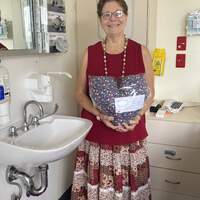Surgeon Q&A: The Lifelong Management of Heart Valve Disease with Dr. Wilson Szeto
Written By: Adam Pick, Patient Advocate & Author
Medical Expert: Wilson Szeto, MD, Chief of Cardiovascular Surgery at Penn Presbyterian Medical Center
Published: April 14, 2021
The management of heart valve disease can be tricky.
Some patients have symptoms. Other patients are asymptomatic. Some valvular disorders progress slowly. Other valvular disorders progress quickly. Some patients need surgery. Other patients never enter an operating room. Some patients get heart valve repairs. Other patients get heart valve replacements.
To make it even more confusing… Some patients may need multiple procedures throughout their lifetime.
To learn about the challenges and the opportunities for the lifelong management of heart valve disease, I interviewed Dr. Wilson Szeto, the Chief of Cardiovascular Surgery at Penn Presbyterian Medical Center in Philadelphia, Pennsylvania. During this special video interview, Dr. Szeto revealed many important considerations for heart valve patients, their family members and friends.
Key Learnings from Dr. Szeto About the Lifelong Management of Heart Valve Disease
Dr. Szeto shared many important points in this video. Here are the key learnings I jotted down:
- Dr. Szeto is heart valve specialist having performed more than 5,000 cardiac procedures and over 2,000 heart valve operations.
- According to Dr. Szeto, the management of heart valve disease is a lifelong process, or journey. The initial step in that journey may begin with the detection of a heart murmur when a doctor listens to the patient’s heart with a stethoscope.
- Valve disease progresses at different rates. Most of the time, valvular disorders – including aortic stenosis and mitral regurgitation – progress slowly. This provides patients and their doctors a special opportunity to work together, over time, to better understand the nature of the valve disease, the patient’s needs and their lifelong goals. Dr. Szeto states, “For most patients, fortunately, it is a slow progression. It allows you to build this bond with your physician, to understand the best treatment options now and also in the future.”
- Specific to patient emotions… Dr. Szeto shared that many patients experience feelings of fear and anxiety when diagnosed with heart valve disease. There is also a common, unwarranted belief among patients that they caused their valvular disorder. According to Dr. Szeto, patients frequently ask him, “What did I do to cause this?”
- Dr. Szeto described himself as a “patient advocate” when he reflected upon his role helping patients throughout their care. Dr. Szeto stated, “I think that is what’s so special in terms of my relationship working with these patients as their patient advocate, trying to reassure them that under the right guidance, working with the right physicians, that your life is going to be okay.”
- The development of a lifelong plan for heart valve disease is critical for patients. A key component of that plan is finding a cardiac center that has extensive experience with valvular disorders. At Penn Medicine, Dr. Szeto leverages all available expertise, research and technology within a multi-disciplinary “Heart Team” including surgeons, cardiologist, interventional cardiologists, and primary care physicians to benefit the patient.
- The patient plays an important role in planning their care. According to Dr. Szeto, this creates a shared-decision approach which ultimately helps patients and their medical team.
- Re-operations can be a key consideration for patients and their medical teams as they develop a lifelong plan for managing heart valve disease. The frequency and/or likelihood of those operations, also known as re-interventions, is often dependent upon the patient’s age upon the initial intervention.
- Within a lifelong heart valve disease plan, patients and their medical teams need to think about the next 15 to 20 years of the patient’s life. Dr. Szeto states, “Understanding not what I can do as a surgeon for you today but also how that impacts your options for re-operation or re-interventions 15 or 20 years later is extremely important. This is really where that shared decision-making comes into play. For me to understand what that patient’s needs are today and how do I then best position that particular patient to have all possible options in the future for re-interventions is absolutely essential in making sure that this lifelong plan fits a specific patient and is tailored to his or her needs.”
- Advances in medical technology and therapeutic innovations should be part of the planning process for patients and their medical team.
- Dr. Szeto’s key considerations for patients managing valve disease include (i) research your disease, (ii) research your treatment options, (iii) understand your uniqueness, and (iv) trust that you are making the right decisions at the right time.
- In his closing remarks, Dr. Szeto stressed that being an informed patient is very important for the lifelong management of heart valve disease.
Thanks Dr. Szeto!!!
On behalf of our community, I want to extend a huge thank you to Dr. Szeto for taking the time to share his clinical experiences and research specific to the lifelong management of heart valve disease. Dr. Szeto had so many great points about this often over-looked but very important topic for patients. Thanks Dr. Szeto!!!
Related Articles:
Keep on tickin!
Adam
P.S. For the hearing impaired members of our community, I provided a written transcript of the video below.
Video Transcript:
Adam Pick: Hi, everybody, it’s Adam with heartvalvesurgery.com, and this is a very important surgeon question-and-answer session all about the lifelong management of heart valve disease. I’m thrilled to be joined by Dr. Wilson Szeto, who is the Chief of Cardiovascular Surgery at Penn Presbyterian Medical Center in Philadelphia, Pennsylvania. During his incredible career, Dr. Szeto has performed over 5,000 cardiac procedures, of which more than 2,000 involved some form of valve repair or valve replacement.
Dr. Szeto, are you there?
Dr. Wilson Szeto: Hi, Adam, how are you? It’s certainly a pleasure to be here today. Thank you very much for having me.
Adam Pick: Yeah, Dr. Szeto, I’m really excited for this conversation. Before we get into the discussion about the lifelong management of heart valve disease, I’m real curious to know when did you feel like you knew you wanted to be a cardiac surgeon.
Dr. Szeto: It goes all the way back to when I was 18 years old. I was a senior in high school. Over Spring Break, I had the opportunity to spend a week in the hospital, and I was very fortunate to have had the opportunity to shadow a cardiac surgeon. I spent a week with him, and I saw the compassion, the expertise, the knowledge that the possessed, and boy, what an impact he had on his patients. Spending time with him in the operating room, seeing what he could do to really make lives of patients better, it was an ah-ha, eye-opening moment, and I knew then that that twas the path, that was the professional career, that I wanted to do for the rest of my life.
Adam Pick: That is a great story, Dr. Szeto, and I’m glad you had that ah-ha moment. Now maybe we can talk about valve disease. There’s so many things available to cardiac surgeons that they could focus on: atrial fibrillation, coronary artery disease, transplants. Why did you choose valve surgery to be such a big part of your practice?
Dr. Szeto: That’s a fantastic question, and I think all of medicine is amazing. It’s an absolute privilege to be someone’s physician, but what really drew me to cardiac surgery and specifically valve surgery is the impact it has on patients, not only on their lifestyle, their quality of life but really their entire lifelong goals and what type of process and life career goals that want to pursue. From a very technical physician’s perspective, the anatomy, the physiology, and the treatment options that are now able to be offered to these patients, to me in my mind, is just so elegant and so rewarding that I was drawn to it immediately when I was starting my training in cardiac surgery.
Adam Pick: When you talk about valve disease and its lifelong management for patients, Dr. Szeto, how is this disease maybe different from some of those other cardiac disorders?
Dr. Szeto: That’s also a great question, Adam, and all heart disease is serious. Of course, I don’t want to minimize any other type of heart disease. Valvular disease, as you’ve alluded to, often times for many patients, it’s a lifelong process; it’s a journey. It often starts as simple as a murmur incidentally heard on someone’s chest when their doctor put stethoscopes on their chest. You can imagine anxiety that would cause the patient. Often times, these patients start out feeling well and over time, working with their physicians, progressed through this lifelong journey of the natural history of valve disease. I think that to me is what is so interesting, that you’re able to form this bond, this relationship with your patient over time, understanding their needs and also understanding what their lifelong goals are as they pursue this journey of life.
Adam Pick: When we talk about patients having that diagnosis and maybe learning that they have a murmur, what might come next for patients? Is this a disease that could progress over months, years, decades before perhaps they need some kind of intervention?
Dr. Szeto: That’s a great question, too, Adam, and I think this is exactly what draws me to valvular disease. Again, I have a – this is a tremendous privilege to be someone’s physician. As you can imagine, most patients come in scared, nervous. Oh, my gosh, what did I do? Is it something I did? The answer to all of that is no, and the key is an awareness of your medical condition like anything else, hypertension, diabetes. Awareness allows you to manage this valvular disease process appropriately. Most patients, fortunately, it is a slow progression over time. It allows you to build this bond with your physician, understand the best treatment options now and also in the future. I think that is what’s so special in terms of my relationship working with these patients as their patient advocate, trying to reassure them that under the right guidance, working with the right physicians that your life is going to be okay. As long as you’re aware and you’re treated appropriately, it is going to be fine and we’ll work through it together. I think that’s the key message that I want to pass on to patients out there.
Adam Pick: Dr. Szeto, I have to ask, how does all of the uniqueness of valvular disease motivate maybe you and your entire team at Penn Medicine to create a lifelong plan for your patients?
Dr. Szeto: I think you hit it right on the head. I think it is also a privilege for me to be at institutions such as Penn Medicine where we can leverage all the expertise of all the different specialties, all the research we have here, all the knowledge that we can share and cross-fertilize. I think the Heart and Vascular Center here at Penn, the multiple stakeholders, the multi-disciplinary approach – cardiologists, interventional cardiologists, primary care physicians, advanced practitioners, surgeons like myself – and again, this is the part that I want to stress. The partnership that is important also includes the patients. The process of a share decision-making in the management of valvular disease is a concept that we’re embracing, and I think it is the right direction where we’re going.
Adam Pick: Dr. Szeto, what I can tell you from my own experience of having valve surgery 15 years ago and when I talk to a lot of patients, often under-looked part of the lifelong management of valve disease is this possibility of a re-operation. So many times we’re so focused on just getting past that first surgery we don’t think what might be happening down the road. I’ve got to ask you, are re-operations something that occur for your patients?
Dr. Szeto: That’s a great question, and re-operations, re-interventions, absolutely do occur. The younger you are, the more relevant that question is, obviously. I think this strikes the exact point that I want to make, the importance of it, that it is a lifelong management. What a particular patient needs are today may be very different, and re-operation options can also evolve over time with technology. A young patient will have needs that are different today versus 15, 20 years down the road. Understanding not what I can do as a surgeon for you today but also how that impacts your options for re-operation or re-interventions 15, 20 years later is extremely important. This is really where that shared decision-making comes into play. For me to understand what that patient’s needs are today and how do I then best position that particular patient to have all possible options in the future for re-interventions is absolutely essential in making sure that this lifelong plan fits a specific patient and is tailored to his or her needs.
Adam Pick: Dr. Szeto, I’m wondering what are your top considerations for patients as they think about managing valve disease throughout their life?
Dr. Szeto: There are lots of considerations. I think I would say number one, understand and do some research Right now with leaders like you in social media, I think in information age, I think it’s easier now, and I love working with an informed patient. I think that is absolutely key, because I think that’s how we leverage each other’s knowledge. I get to know a patient a little bit better, and a patient gets to know me better. An informed patient is absolutely important.
Number two, each patient’s different. Each patient’s at a different part of their life when I meet them. I think each patient needs to do a little soul searching and understand what their life goals are, not only what they plan to do in the next five, ten years but what their over outlook in the next 15, 20, 30 years. I think a patient needs to understand what their needs are and what they want to do with their lives.
Then lastly, I just want to say to patients that once you’ve done the homework and once you find a partner, ie a physician or physicians or a team, every decision that you make is the right decision. There’s no wrong decision, and I want to just let patients know. Often times they get hung up on Doctor, am I making the right decision? My response is if you’ve done the work and you’ve talked with your partners in healthcare, every decision’s the right decision. I think that’s important for patients to understand. There are no wrong decisions.
Adam Pick: Dr. Szeto, I’ve got to tell you, as a patient, the amount of comfort I think other patients are going to have hearing your top considerations are – they’re just fantastic, and I’d encourage anybody, if you get to that point where you forget what you need to do, do your homework. Think about buddying up with a great cardiac care team and know that you’re doing everything right. You’re doing everything that you can and this time in your life and as you plan your lifelong management of valve disease. Dr. Szeto, I can’t thank you enough for these insights today. I know this information is going to help a lot of patients out there and thanks for everything that you’re doing there at Penn Medicine.
Dr. Szeto: Adam, thank you very much again for having me. It’s certainly a pleasure and a privilege to be here. It’s been a fantastic conversation. Thank you very much.
Adam Pick: Yeah, thanks again, Dr. Szeto, and as we always say here, keep on ticking.




